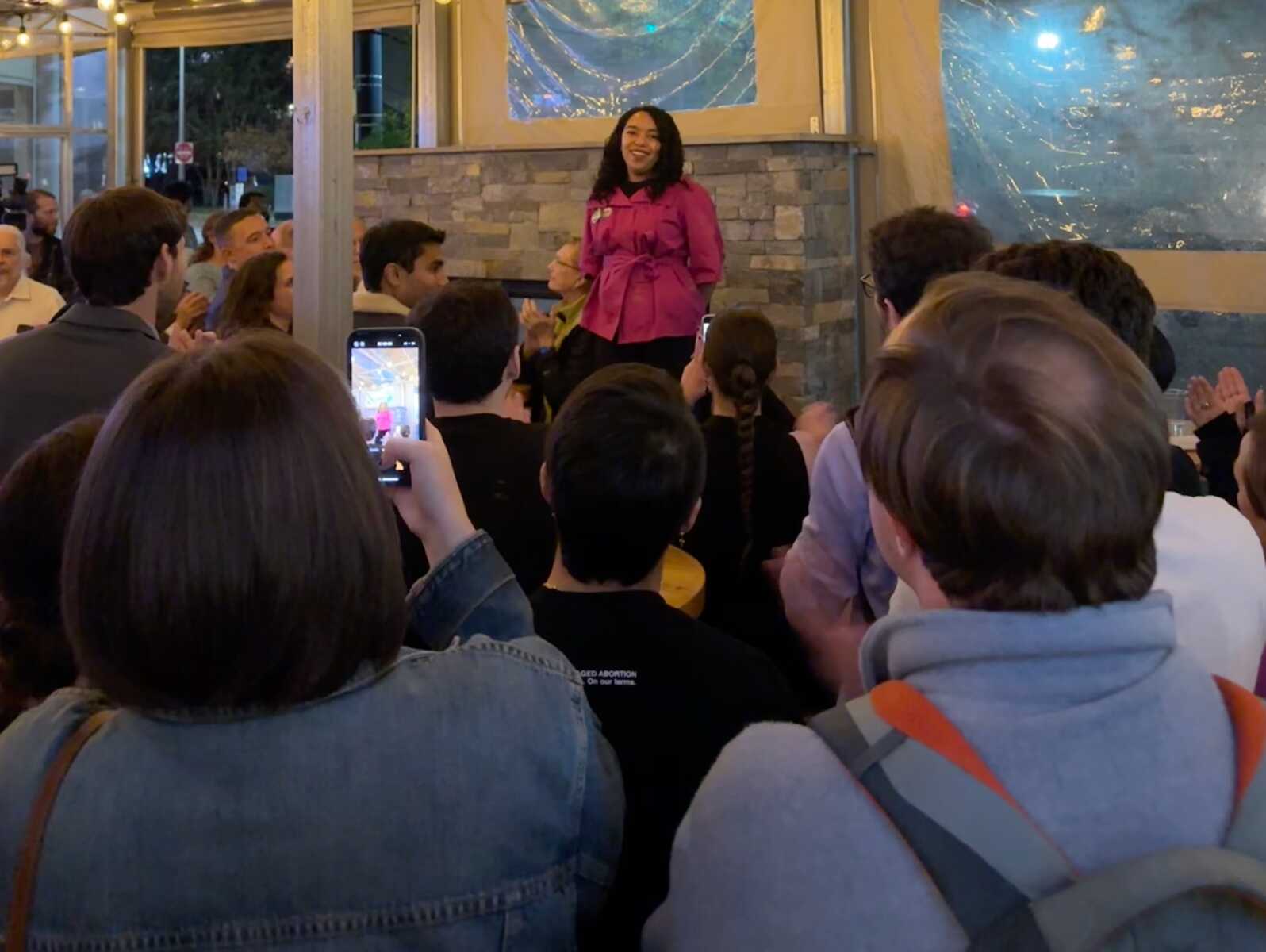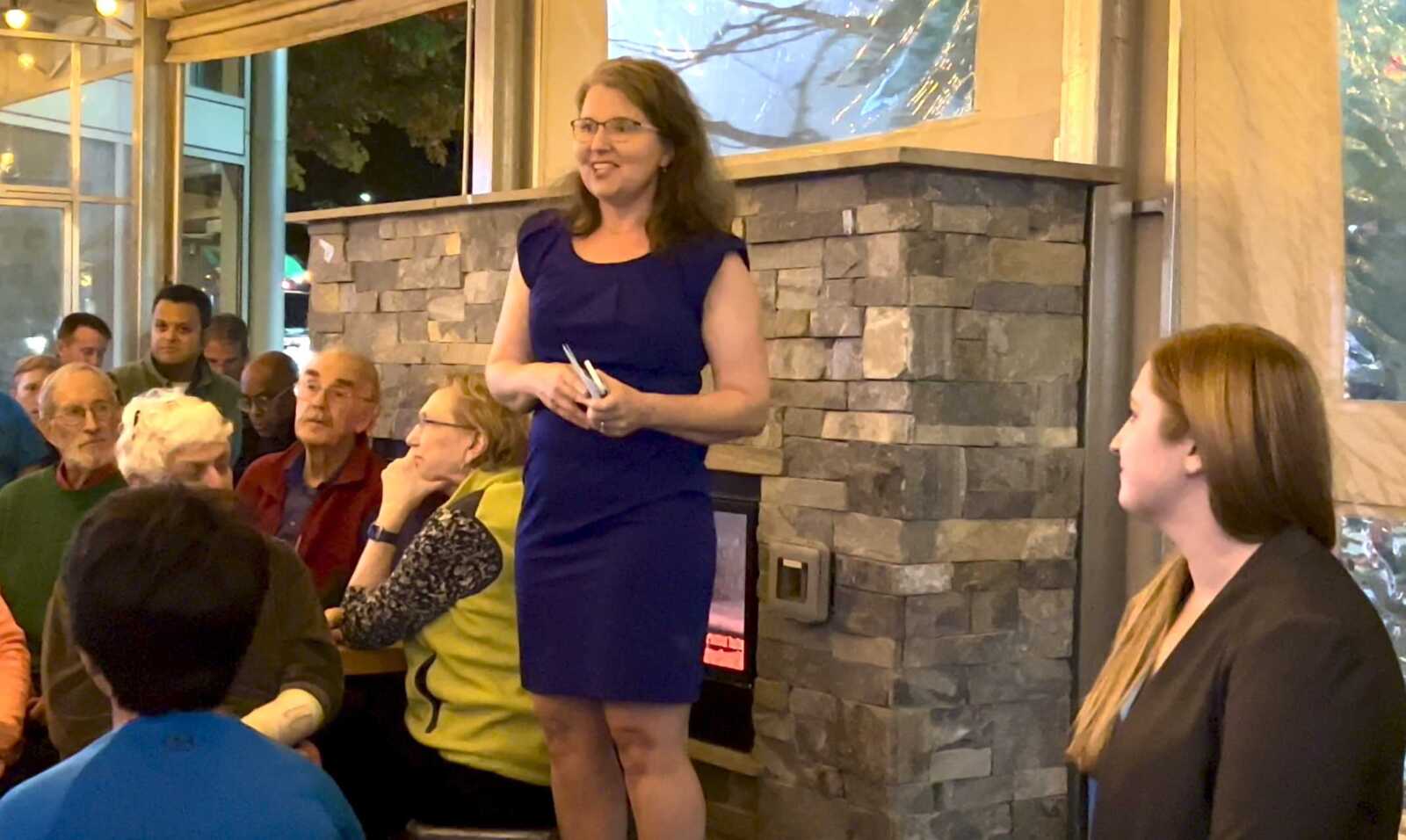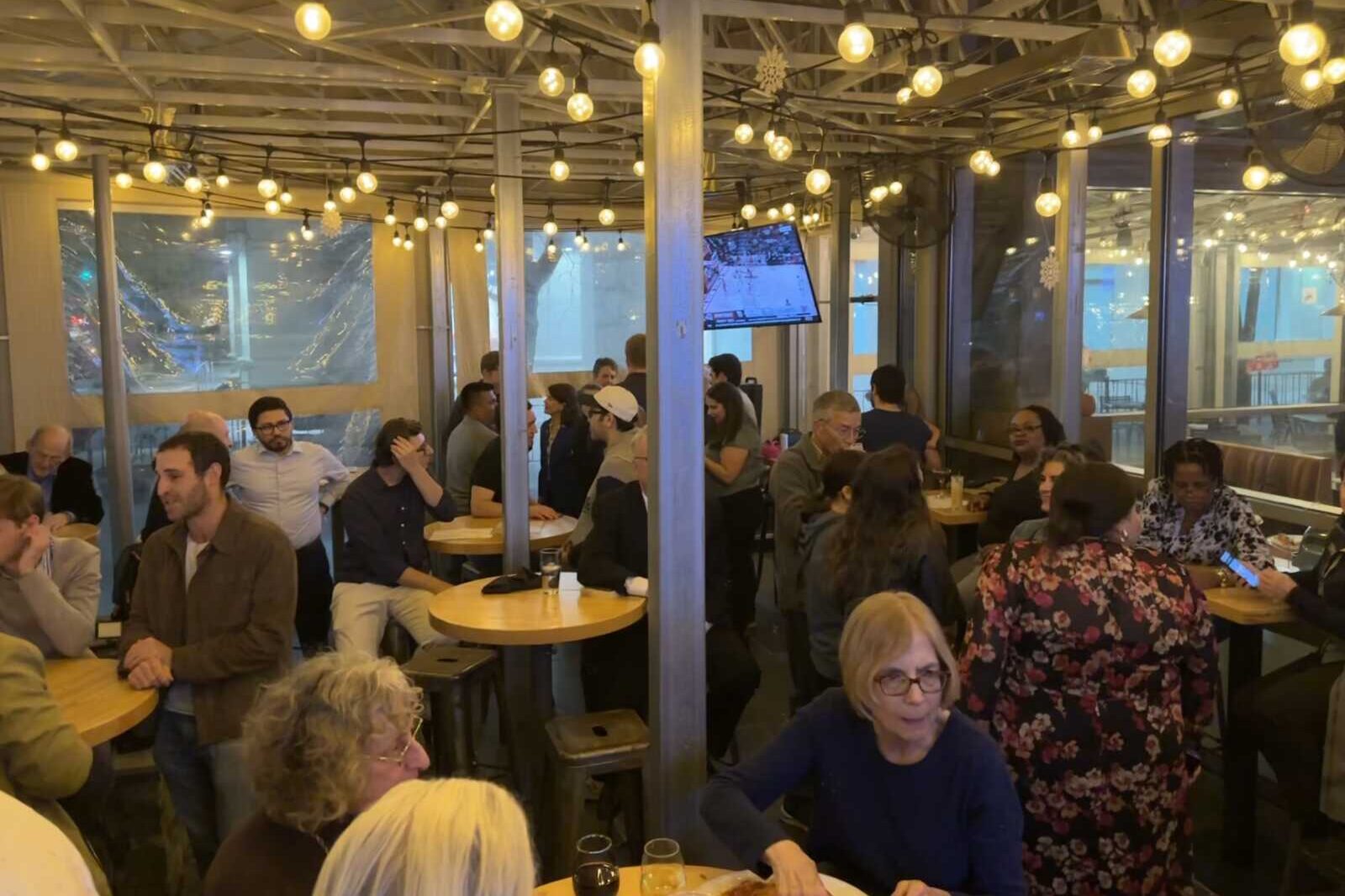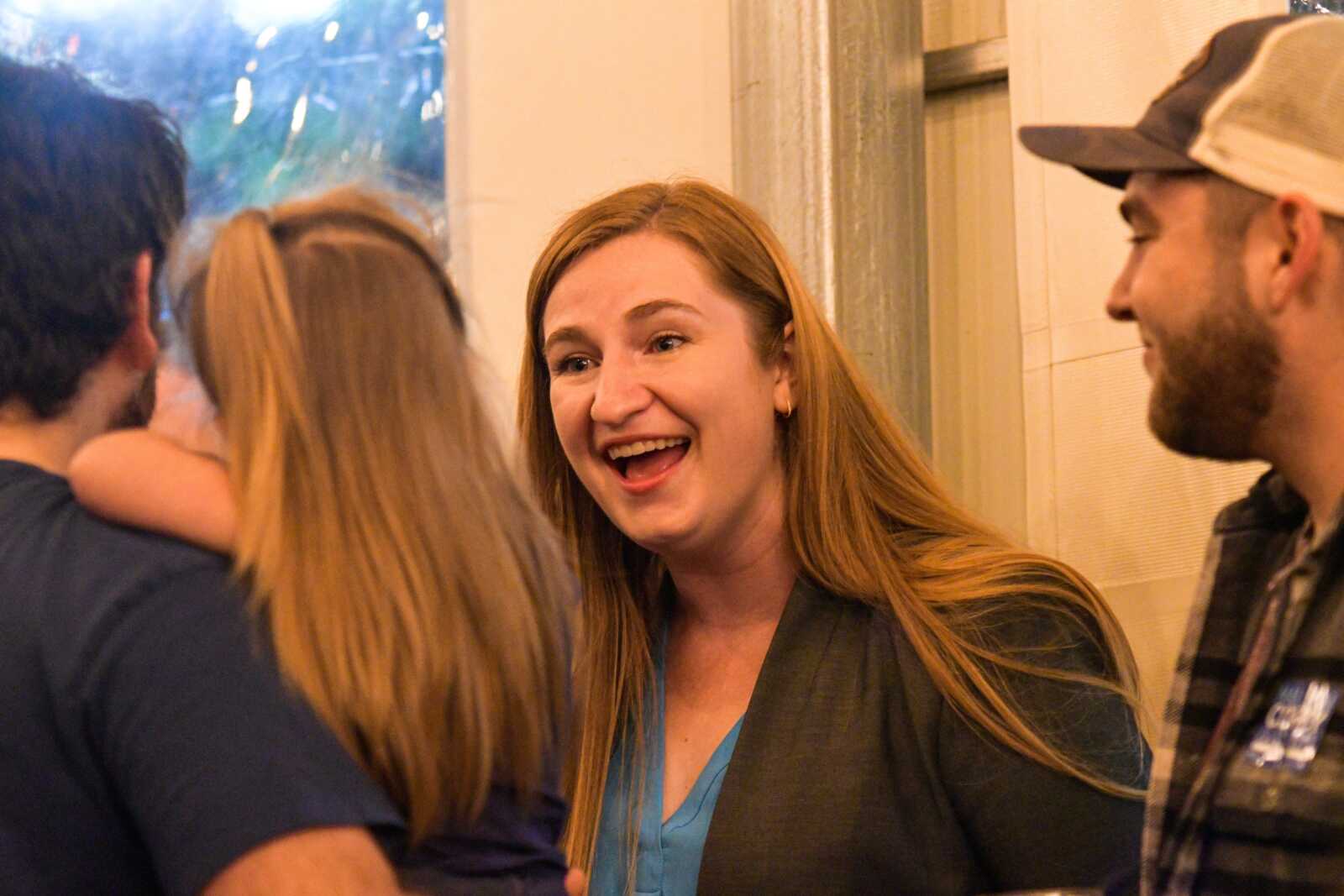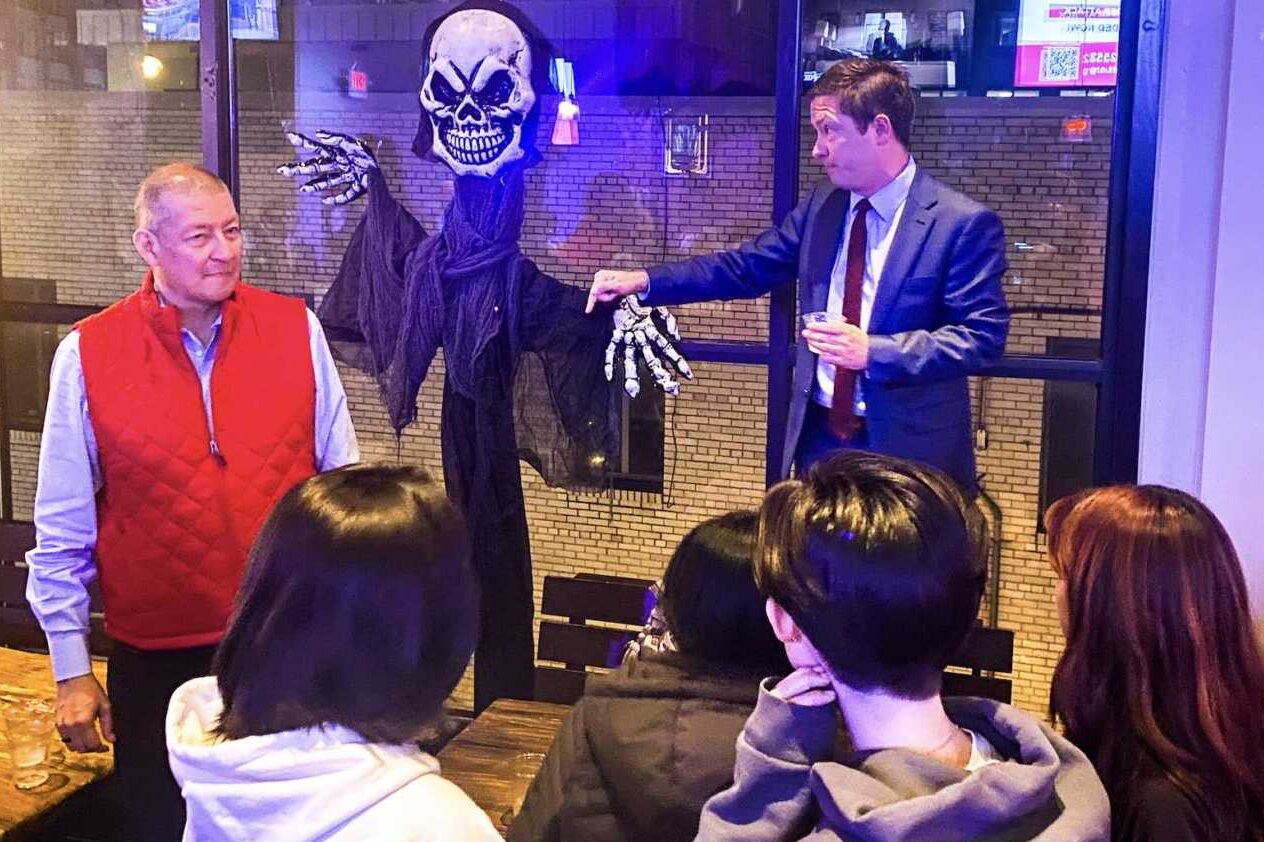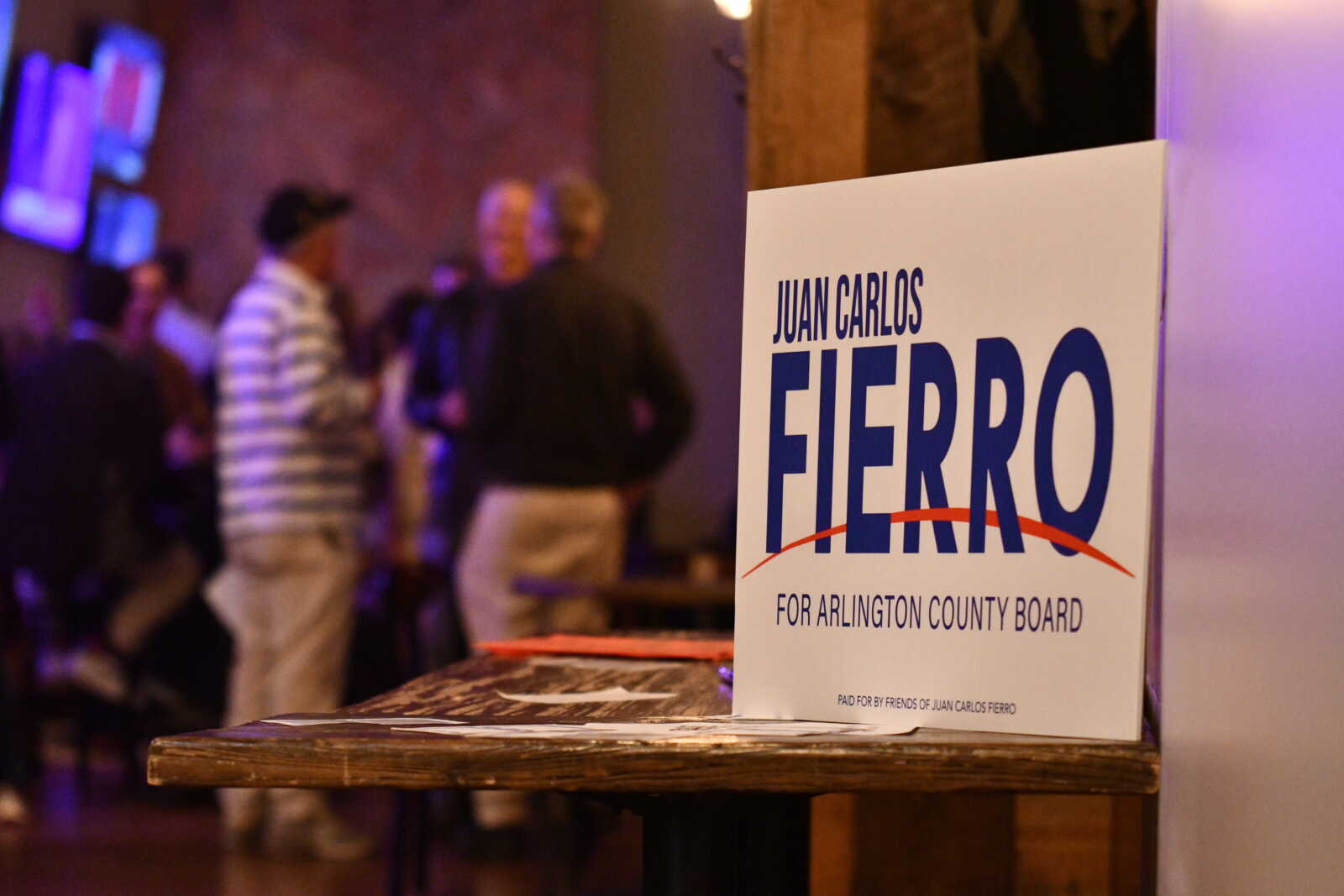(Updated at 4:10 p.m.) Tight races for the state legislature and proposed restrictions on abortion motivated Virginians to the polls on Election Day.
This was despite the lack of statewide and federal elections, which typically drive turnout. The races for local office and the Virginia General Assembly played out against the backdrop of Republicans vying for a trifecta — control of the governor’s office as well as the lower and upper legislature chambers — and Democrats trying to stop them.
At stake were abortion rights, as Gov. Glenn Youngkin (R) floated trying to pass a 15-week ban if Republicans took the Senate and kept the House.
Arlington had two state Senate and several House of Delegates seats on the ballot. Only three races had challengers, however, and among them Democratic incumbents Sen. Adam Ebbin, Sen. Barbara Favola and Del. Alfonso Lopez all won last night. While their road to victory was easier, the competition was stiff elsewhere in Virginia, commanding their attention and that of other politically minded Arlingtonians.
“It’s a little strange in Arlington because we’re in this blue bubble in what’s essentially a purple state leaning slightly toward Democrats,” says Sam Shirazi, an East Falls Church resident and Virginia elections analyst. “Virginia is just one of those states where, especially in these state elections, as opposed to federal elections, it’s almost always going to be close. ”
Shirazi had predicted Democrats would secure slim majorities in the Senate and House of Delegates, which he says is coming to pass. Democrats flipped the House and retained the Senate, not in a sweep but by securing key seats in suburban counties such as Loudoun and Henrico.
Arlington played a supporting role in these races, says Arlington County Democratic Chair Steve Baker. Volunteers spent 40 days canvassing, making thousands of phone calls and sending out 18,000 postcards and targeted seven districts of which Democrats won in six.
“Grassroots organizing works,” said Kip Malinosky, chair of the initiative dubbed Beyond Arlington. “Democrats win when we’re talking about issues that matter: abortion rights, voting rights, and gun safety. I’m proud that we played a role in helping Democrats win across the state.”
State Sen. Adam Ebbin, who was re-elected in the 39th District, said Virginians sent their governor a strong message last night.
That message would be that you can work with people across the aisle to get things done for the betterment of the Commonwealth rather than dividing them in a cynical and twisted manner. And I believe that Virginians don’t want, and will express by the end of tonight, that we don’t want the government banning books. We don’t want people interfering with our personal freedoms, whether it’s reproductive rights, your right to breathe clean air, or the safety of our communities from gun violence.
Shirazi says the state races were closer due to Virginia’s 2021 redistricting effort, in which he participated.
“Previously the maps were drawn by the legislatures themselves and obviously they had an incentive to try and protect themselves, to maybe protect their party,” he said. “This time… a lot of the incumbents, either in the primary or the general election, lost, so we had a lot of turnover in the General Assembly, and then, both chambers were competitive because they weren’t drawn to favor either party.”
“That’s why there was a lot of suspense going into the election,” he continued.
Rising turnout
Although Arlington’s races seemed comparatively less competitive, participation has been rebounding since 2007, according to local elections buff and former county treasurer Frank O’Leary.
This year, the unofficial turnout rate was around 36%, just slightly lower than the 39% rate in 2019, per Arlington’s Dept. of Elections. O’Leary attributes the recent uptick to early voting, authorized in 2015, and in 2019, to former President Donald Trump, who he says effectively drove Democrats to the polls from 2017-20.
This year, he predicted lower turnout than 2019 — 32% at best — in part because the Trump effect is greatly reduced, but also because issues that “might have spurred turnout (e.g.; the Commonwealth Attorney’s policies, the Missing Middle program) seem to have melted away.”
Republican Juan Carlos Fierro and independent Audrey Clement did highlight crime rates and “anti-police” policies as well as the Missing Middle zoning changes in their final pitches — but these were not enough to flip voters.
First-time candidate Fierro earned nearly 12% of votes while Clement earned 12.5%. This is about on par for Clement in four-way races, where she has previously garnered 10-14% of the votes.
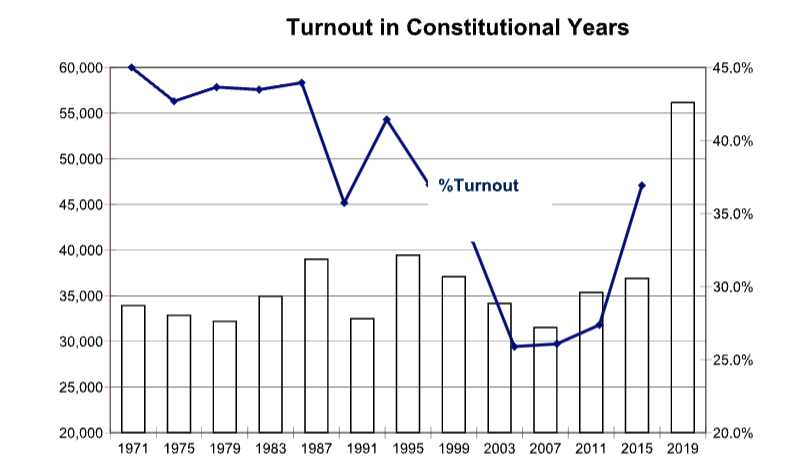
Through the mid-1980s, so-called constitutional years — when local offices specified in the state constitution are up for election — and their low comparatively low turnout provided the right conditions for Republican victories, O’Leary said. That ceased to be true after Republican hopefuls lost several races in 1987 and turnout plummeted in 1991.
Republicans are still gaining their footing and the local GOP is now looking to reestablish its presence in local politics, though it faces an uphill battle.
“All of our candidates were first-time candidates, and I’m so proud of Juan Carlos, David, and Sophia for running,” said chairman Matthew Hurtt. “I think this year was the benchmark. This is the first year we had a strong candidate for the county board — Juan Carlos.”
New faces on the County Board
Fierro said his first bid was a “great experience” but he is not sure yet if he will do it again.
“It has taken a lot of time and energy because of my job and my other duties. So we’ll see what happens in the future,” he said. “I cannot tell you tonight that I’m going to run again, but it has been a great learning experience.”
He says he believes he gave voters a choice but “this time, they didn’t take it.”
Clement says Arlington suffers from “one-party rule” and will not shake the status quo so long as people vote along party lines and the local media write off elections as foregone conclusions.
“The only thing that might change this dynamic is if the majority of voters actually suffered the consequences of straight ticket voting, one of which is excessive taxation,” she said. “That’s not likely to happen here, since those who can’t afford exorbitant rents and high real estate taxes are recycled out of the county and replaced with more affluent types who can pay the freight.”
Looking ahead, County Board member-elect Maureen Coffey said she is excited to join a new generation of leaders discussing housing, the climate and mental health in fresh ways.
“I heard just again and again at the polls today, how many people were excited to see a young person running. That was from other young people — my peers in the community — but that was also from people who were 10 years, 15 years, 25 years older than me, double my age sometimes,” she said.
“They know that young people need to be stepping up and they were excited to really hand that mantle to me — to someone who is a qualified, competent young person who’s invested in making this community as good as it can be,” she continued.
Coffey celebrated the incoming three-woman majority on the Board, with fellow Democrat-elect Susan Cunningham and Vice-Chair Libby Garvey, who is up for re-election next year.
Cunningham, meanwhile, said she is eager to get to work.
“I am so grateful to neighbors across Arlington who shared their stories, hopes, and concerns during the campaign,” she said in a statement. “I am ready to hit the ground running, putting my executive experience and common-sense leadership to work for all of Arlington. Together we will get housing and planning right, reconnect our community, and ensure a responsive and efficient government.”
James Jarvis contributed to this report


